Rethinking the Corporation
Conversation with Tchenna Maso, Nomi Prins and Barnaby Francis
STATE OF POWER 2020
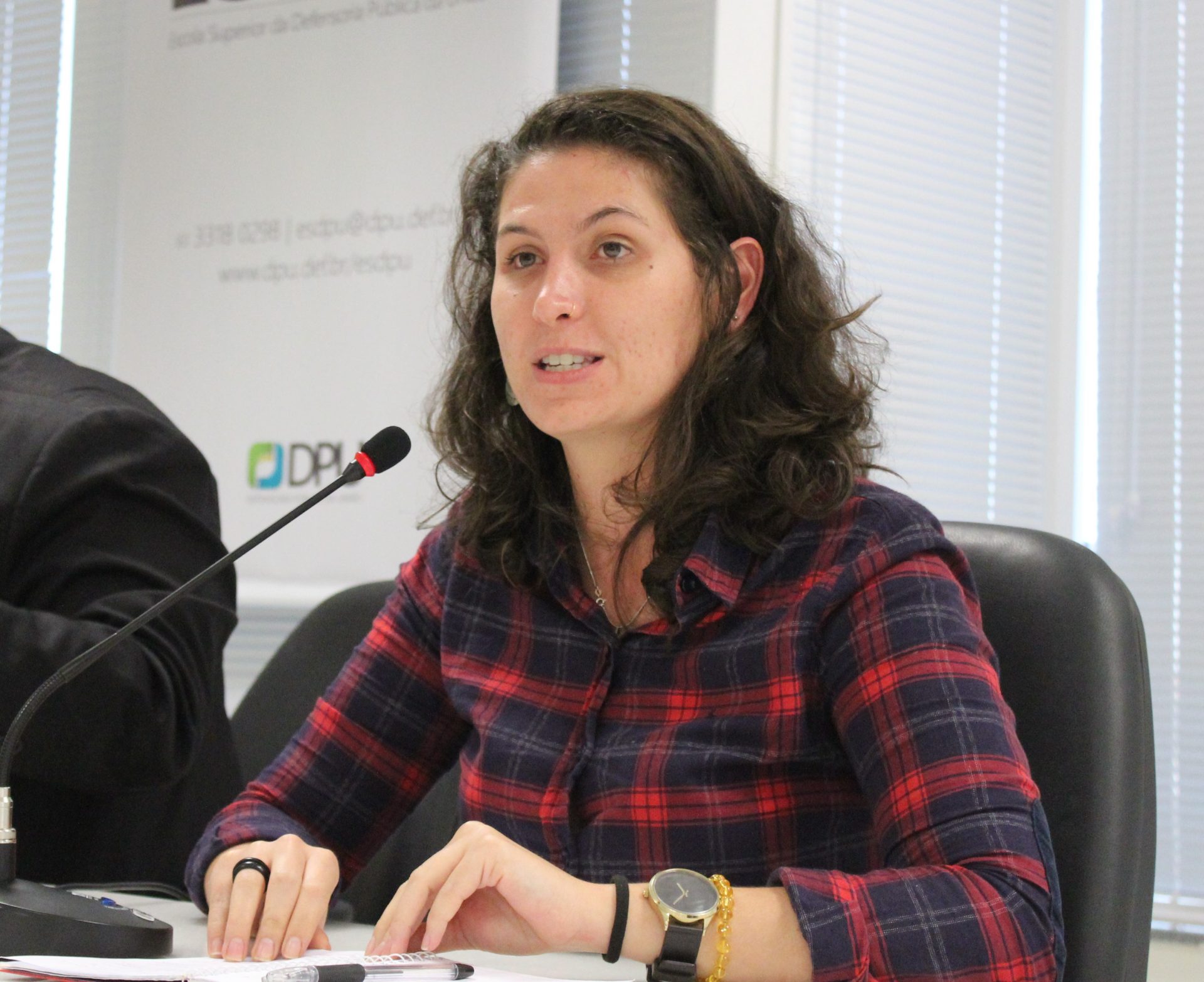
Tchenna Maso is a community lawyer and a member of the Movement of People Affected by Dams (MAB), a grassroots movement made up of affected communities leading struggles against mining operations and giant hydroelectric projects. She is also active in the farmers movement, La Via Campesina, that fights for peasant rights and the rights of landless people in Brazil.

Nomi Prins worked in the upper echelons of the financial world as a managing director at Goldman Sachs and a senior managing director at Bear Stearns as well as a strategist at Lehman Brothers and an analyst at the Chase Manhattan Bank. During her time on Wall Street, she grew increasingly aware of and discouraged by the unethical practices that permeated the banking industry. In 2002, she left and has since become a journalist and writer and leading authority on financial and monetary systems.
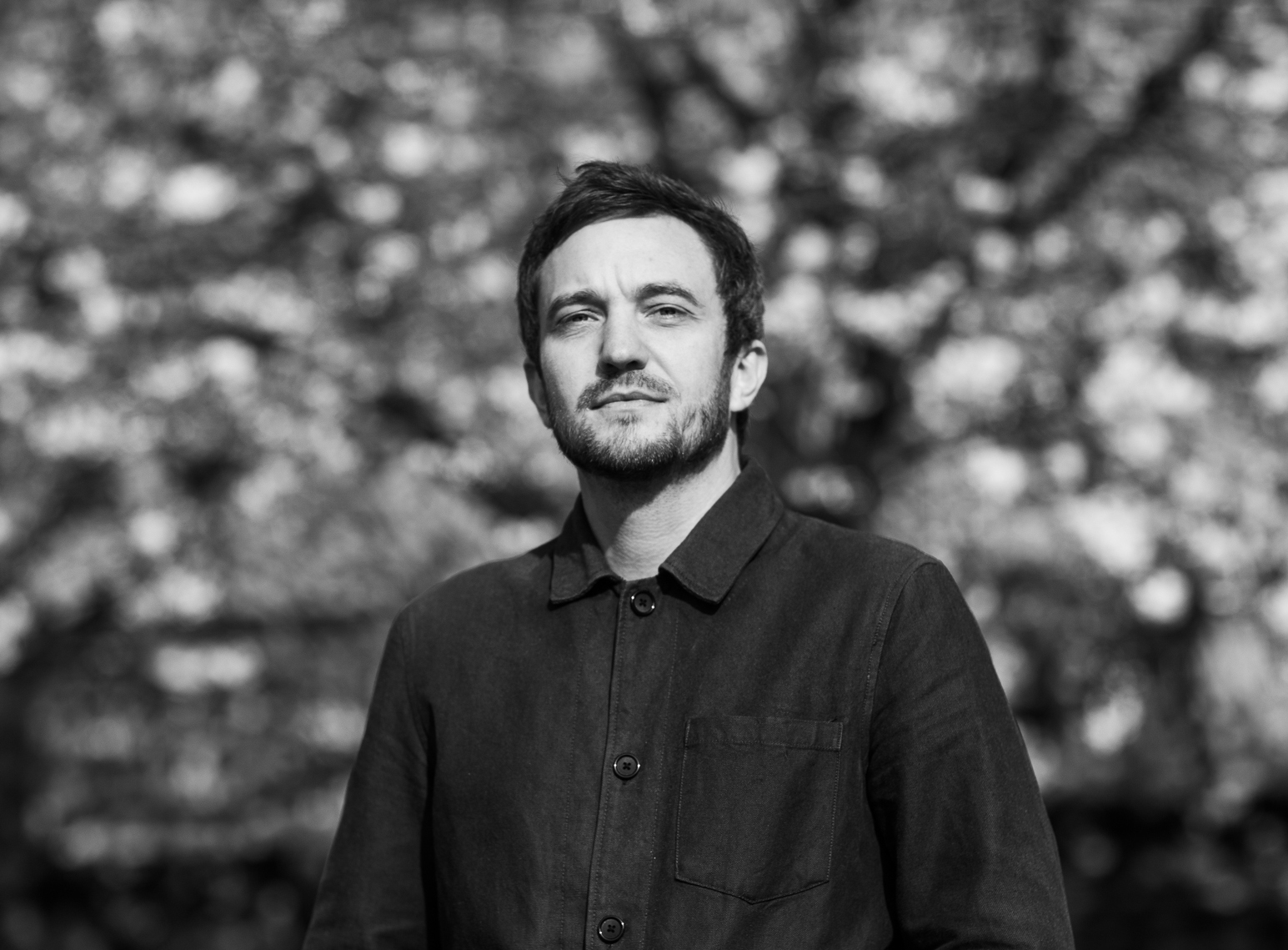
Barnaby Francis, AKA Bill Posters, is an artist and activist whose work interrogates corporations and power relations that exist in public space and online. He has been involved in many subvertising projects, including one that replaced 600 corporate green-washing billboards in Paris in 2015 before the UN climate-summit with truth-telling posters. In June 2019, one of his and Daniel Howe’s AI-synthesised ‘deepfake’ videos of Zuckerberg appearing to announce a new dystopian programme, Spectre, became a viral sensation, drawing attention to Facebook’s power and its manipulation and commercialisation of people’s data.
From your different personal experiences, what have you learnt about the nature of the corporation?
Nomi Prins: The general theme is that all major multinational companies are driven by the bottom line. This means maximising profits and minimising costs. This might seem obvious but it permeates everything they do, the taxes they avoid, risks they take, and what they do in communities. I worked in four major international banks, and from the inside, upper management simply doesn’t care about how their activities impact the outside world.
For example, working at Bear Stearns in London in the 1990s, I was involved in a product that involved a major expansion of debt in emerging and corporate markets, looking at new ways to repackage and sell off or trade that debt, so that the bank could profit multiple times from a single bond.
At the same time, activists with the Jubilee 2000 initiative, were campaigning on the streets, pointing to the dangers of these debts for needed investments in health, education and so on and looking to reduce the debt burden. But none of that mattered on a day to day basis within the banks.
Corporations are also very much driven by short-term profit gain and how to translate favourable quarterly and annual results into higher share prices. In the banking sector, and in most corporations, the higher up people are in the firm, the more likely they will receive part of their compensation in the form of shares, stocks, or options on an annual basis, so everyone cares most of all about what was made that year at the firm and how it impacted share prices.
Bill Posters: I think that the corporation is simply now a mutation of a kind of nation-state. A transnational hybrid nation-state, with no perceived borders yet similar levels of power and control. The only borders that contain the modern corporations are the frontiers that they are seeking to exploit.
This logic is very much at the core of neo-colonial capital. It always needs new territories and materials to assimilate or homogenise via the never-ending process of capital absorption
Of course this notion of frontiers has heavy colonial and neocolonial signifiers, and has been extended by a neoliberal ideology, the financialisation of all things and systemic deregulation that removed many of the chains from corporations.
What we are seeing in digital spaces are extensions and mutations of neoliberal ideology. There is a great quote in Shoshana Zuboff’s book [The Age of Surveillance Capitalism] where the Google CEO talks of Google’s business model as operating in new territories where the corporation can expand with unrestricted forms of ‘permissionless innovation’.
This quote encapsulates so much about the logic of the modern corporation; corporations are not even asking for anything that states are in control of any more. They are simply taking. It’s why Zuckerberg feels he doesn’t even need to turn up to the UK or European parliaments, because in his world power doesn’t operate there anymore. It’s why Google has been shielded from serious, organised scrutiny at state level.
What we are seeing now are truly unprecedented levels of consolidations of corporate power.
The dependency of all users on their systems and products include not just billions of citizens but most nation state governments, their military-industrial, financial and surveillance infrastructures too.
In the past, there were more equal capacities of states and corporations; they were symbiotic in their relationship but power was more traditionally distributed by the nation state. We now have trillion dollar corporations with 90% market dominance, operating across physical and digital spaces that encompass the globe. So what we are seeing now are truly unprecedented levels of consolidations of corporate power.

Tchenna Maso: The biggest challenge as I have worked to challenge Vale and BHP is that there is no information over their financing or operations and no state control.
So Vale is supposedly a Brazilian firm, but no-one outside the firm knows who all the investors are, how the corporation is structured through all their intermediaries, or all the work they are involved in.
It’s not just communities who don’t know, government don’t know, not even the investors know what they are invested in. Corporations have become financialised and increasingly impermeable to pressure. That is why they are so difficult to challenge.
Vale is emblematic. It was a state firm, sold in 1994 to international capital. It used to be known for having a good reputation and good pay for workers. It was sold cheaply to banks such as Bradesco and then increasingly sold onto international investors.
By the early 2000s, it was completely financialised, so we don’t even know their directors let alone how to contact them. It is predominantly owned by about 400 investors including pension funds in New York stock exchange.
As it became more financialised, it moved into new mining areas, outsourced lots of work to subsidiaries and made working conditions increasingly precarious. But it is a corporation without a clear public face.
Nomi: They have money and position – and that money buys them access to people in power so they can always have a seat at the table with senators, presidents, foreign ministers from around the world and so forth. For many decades, that money-power, or corporate-political relationship has been the very fabric of industry and policy.
Corporate and political leaders don’t just meet formally, but also informally, living in the same neighbourhoods such as the Hampton’s [near New York], going on holiday in the same places, visiting the same clubs, having the same circle of friends.
Money and power intersect at the top of society’s food chain with the relationships between CEOs and political leaders, but also at lower levels, such as where lobbyists for example are constantly meeting with political aides, writing the policies – tax, regulatory, trade etc. – that bolster their power.

One good example is Jamie Dimon, now the current CEO of JPMorgan Chase. He has remained a leading banker through the past three political party changes at the top of US politics – from President George W. Bush to Barack Obama to Donald Trump – and has had relationships with all of them.
His bank was one of the long list of corporations that Trump noted during the signing ceremony of Phase One of the US-China trade deal in January 2020. JPMorgan Chase is also the firm managing Obama’s personal financial asset management funds.
Dimon may or may not differ ideologically to Trump, but his ultimate goal is to reduce scrutiny and regulation in order to keep profits and share prices high, so he will maintain relationships with anyone in power.
Tchenna: The way it has played out in Brazil is that in the past states ruled and corporations were subjects, but the capitalist model has concentrated power economically so corporations have now captured the state. The state has become managed by corporations, so Vale is now involved in governing Brazil. They don’t just control government but also our public space, our thinking, our emotions, our social networks.
In the state of Minas Gerais, they finance 60% of the political representatives. They also have great relations with members of the Supreme Court and the judicial system. And municipalities without alternatives are forced to turn to them for funding. They also have limitless money for propaganda and have become one of the key sources of cultural funding such as concerts, arts. They even have their own culture programme.
They don’t just control government but also our public space, our thinking, our emotions, our social networks.
And within the company and its workers, they also wield influence in many regions, selling an idea that they are a family. Given that the costs of its operations are normally felt in other regions of the country, their workers do not always see the costs and don’t want to believe it either.
So while we do our best to expose the scandal of the Brumadinho disaster, Vale is spending millions to say everything is fine. And with a lack of critical education, a reduction in key community spaces such as unions or community organisations and with most folk having to work more than 8 hours a day for very little, we don’t have the arena or resources to show an alternative.
Bill Posters: I think one key component is storytelling and the way innate human values were twisted to be subservient to capitalist ideals and imperatives. It takes us back the emergence of the PR industry, under the influence of figures such as Edward Bernays with his goal of linking ‘innate human needs and desires to inanimate objects’ by applying the psychoanalytic research of his uncle – Sigman Freud – to commercial markets.
More recent research finds we are driven by both intrinsic and extrinsic values. Social scientists group human values into two broad (and slightly problematic) categories: Intrinsic values are broadly linked to benevolence, collective action and solidarity, and extrinsic values are based around status, wealth, power, perception of oneself in the eyes of others.
Corporations have become extremely specialised in exploiting extrinsic values and derive power from this. What psychologists have discovered is that when a particular value set is activated and primed, it diminishes others at the opposite end of the values spectrum.
So in this sense, mass advertising is normalising and priming certain values that support power and capital. It’s why the advertising industry is worth hundreds of billions of dollars annually.
And these industries with their recent extensions into digital spaces and our psyches via micro-targeting (and soon neuro-targeting) are at the crux of what we face now and how our values and behaviours are being manipulated.
How do we get out of this mess, until we normalise and make visible other values that embody and strengthen the social muscles that can bring about the societal and environmental revolutions that we need in order to avoid unparalleled catastrophe for all forms of life on earth.
And how does this power play out in the different corporate sectors you focus on?
Nomi Prins: Well, the banking sector has had a particularly strategic position given its control over large swaths of money that puts them at the centre of power, for historical reasons and because of the role it plays in issuing and distributing debt (including state bonds), its role in financing corporations through loans, IPOs and distributing shares, even its role in helping fund wars and private parts of defence and large-scale infrastructure projects.
So while there has been a shift of power recently to the tech sector, due to their accumulation of data, their growing assets and their social and media reach, banks still play a pivotal role in shaping the world.
Bill Posters: My main concern about the rise of big tech is that we are now seeing increasingly permissive forms of power, in which power sheds it negativity and presents as something entirely different, as freedom. It’s much more efficient as a form of power, because it presents itself as helping people and their lives, so people subordinate themselves to power relations without any external force or subjugation or visible violence.
The power of Big Tech is insidious as the new totalitarians present themselves as friends to guide us and assist us in everyday aspects of the day to day via the renditioning of behavioural data – at scale – from billions of humans around the world.
It doesn’t involve repressing or forbidding behaviour but rather on making people completely dependent on the corporation and in return ‘giving’ our behavioural data, and increasingly the entirety of human experience as part of the devil’s bargain.
I would call it ‘friendly totalitarianism’. It is insidious as the new totalitarians present themselves as friends to guide us and assist us in everyday aspects of the day to day via the renditioning of behavioural data – at scale – from billions of humans around the world.
It’s important to look at this sector’s emergence in the light of the consequences of 9/11. That led to the nation state imperative of ‘All the data, all the time’ (this is actually the British state surveillance agency GCHQ’s motto). This created the norms and conditions that perpetuates the pervasive digital panopticon of today and the manic frenzy at the frontier a new gold rush – behavioural data.
Corporations like Google, IBM, Amazon and Facebook took on what Yuval Noah Harari has called Dataism with ‘all the hallmarks of a religious philosophy’, where more data equates to more truth, replacing human liberalism as a guiding force of our age.
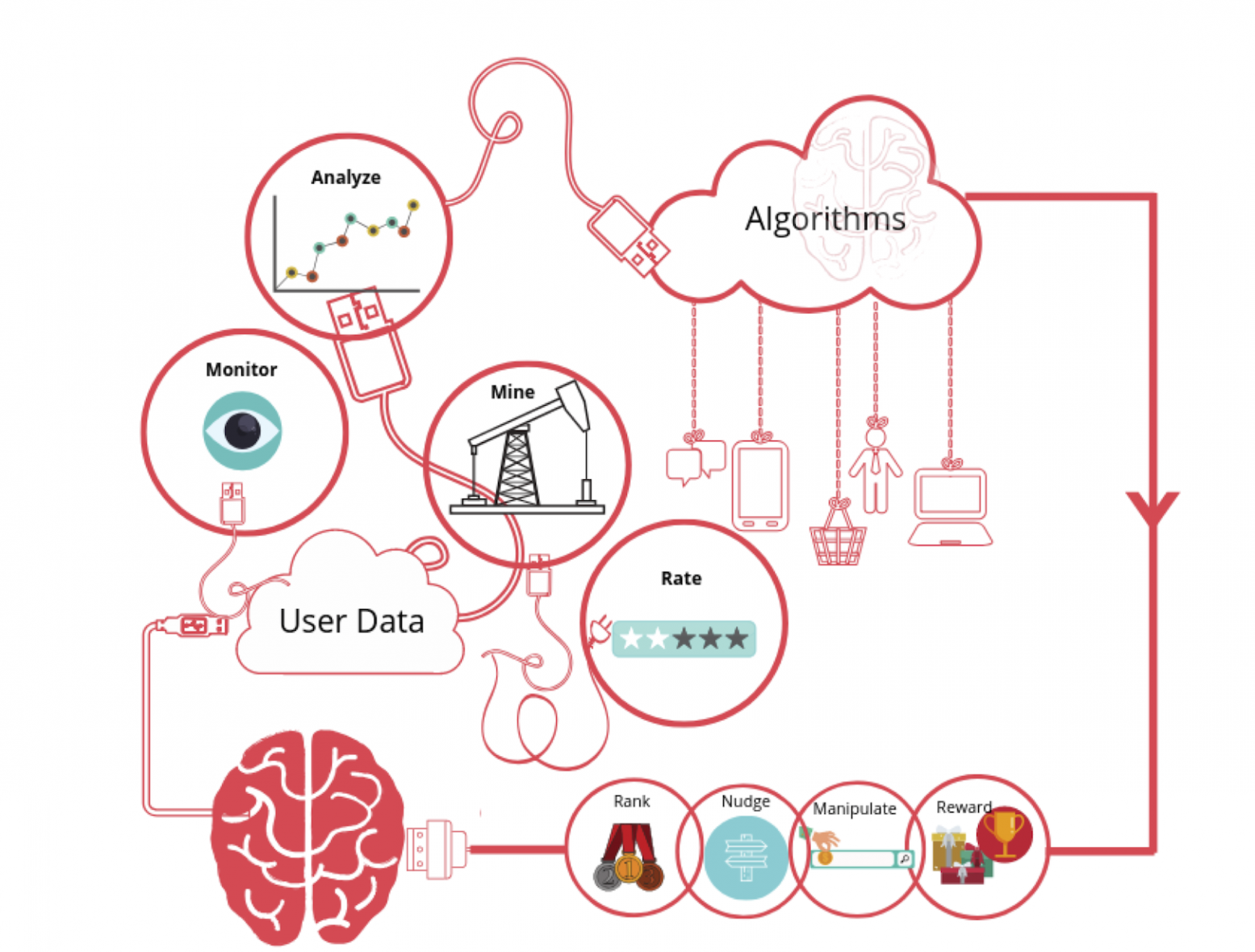
> See Gurumurthy and Chami, The Intelligent Corporation: Data and the Digital Economy
What impact does this concentration of corporate power have on communities and on democracy?
Tchenna: In Brazil, our entire society is deeply affected by corporations. Corporations in Brazil shape everything – labour rights, public politics, poverty, access to land, even violence against women.
That is why MAB was created: to tackle the negative impacts of the privatisation of the electric sector, the increased role of private water firms such as Suez, and the building of dams by corporations.
This struggle has brought us up against giant mining firms such as Brazilian firm Vale and British-Australian BHP. They not only consume huge amounts of energy, they have also been responsible for terrible environmental disasters, such as the collapse of two dams storing toxic waste water in Mariana (2015) and Brumadinho (2019) which killed 270 people and displaced more than a million people. Similarly in my work with La Via Campesino, we are up against corporations such as Bayer and Monsanto.
Bill Posters: I think the rise of the intertwined logics of dataism and surveillance capitalism takes us to another level, where corporations in the digital influence industry pose fundamental threats to our human rights. The right to privacy and a future tense are pretty much non-existent today. And history shows us you can’t have democracy without these fundamental human rights.
People are on the sharp end of both traditional forms of power – violence on bodies and physical oppression – and a new type of violence in digital space.
Reflecting on Tchenna’s experience in Brazil, I think it is also worth noting how the physical impacts of this neo-colonial expropriation intersects in the digital space. I am currently in Kampala, Uganda, where the government has recently installed 3000 facial recognition cameras which will both uphold the government’s dictatorship and also serve its Chinese investors, who are using the biometric data of citizens – images of millions of black faces – to improve their facial recognition capacities and algorithms in China.
It is in short an example of algorithmic colonialism. Whether in Uganda or Brazil, these new digital surveillance architectures are increasingly used to subjugate, oppress and control citizens.
People in countries like Uganda and Brazil are thus on the sharp end of both traditional forms of power – violence on bodies and physical oppression – and a new type of violence in digital space. So not only are physical and material resources being mined and exploited, but also new ‘raw materials’ like human experience – location data, social mapping between activist communities – with even less knowledge about how the data is being used and what experiments are being done with it.
Nomi: In the US and elsewhere, one aspect of the impacts has been the corporate consolidation, or in banking speak, mergers and acquisitions, where smaller companies get gobbled up by the large ones. It is happening in many sectors such energy and media, but certainly also in the banking sector. This consolidation trend has happened for decades, but was accelerated by the political response to the financial crisis.
In total, nearly $22 billion worth of money was fabricated by the largest central banks, but rather than helping people refinance so they could keep their homes, the Federal Reserve provided cheap money to banks who didn’t feel obligated to help their customers in a similar manner.
One thing they did was to buy up mid-sized banks that in turn bought up small banks. This meant that local communities suddenly had branches of mega banks in their midst instead of their local ones, that no longer cared about them, and money that would have stayed within the community was sucked out of the community.
Banks were given an ‘out’ of their financial stress from the crisis that they helped to create, and individuals weren’t. Even now as we face a second wave of foreclosures that can still be traced to the crisis, people are not able to cheaply refinance loans to keep their homes.
Meanwhile banks are buying up banks to become bigger and as they grow economically, they also grow their power and influence at all levels – from local to national to international.

What is the relationship of corporations to society? How do they wield power culturally?
Nomi: I think that a lot of power and corporate relationships to society takes place in how news stories are picked up by mainstream media and social media. We hear much less about how corporations are gaining more power and paying less in taxes and how this leads to less money for small businesses, or less funding for various projects such as providing clean water, responding to fires, environment, wage growth, or creating jobs.
We currently have money sucked out of the system, where society is effectively subsidising companies that in turn circumvent and shape the system to their advantage to increase stock prices without providing additional value to society. And then the rest of society is left to pick up the tab, or lose benefits in the process.
Bill Posters: I am interested in the field of biopolitics, a term explored by Foucault who looked at how power operates through institutions via the discipline of bodies. If you look at digital surveillance and the digital panopticon, we see how this extends from the physical control of human bodies in the Victorian era to the human psyche today, where the goal is now to mine our behavioural data and rendition human experience at scale.
So corporations are now fascinated in data not only because of what they learn about us and our tendencies but because it also allows machines to infer what we are likely to do next as a result. Massive corporate investment is going into these new emerging markets – behavioural futures markets – with billions of subjects and no oversight at any level.
Google’s mission goal is to get to what their CEO has called ‘absolute certainty’ in relation to our behaviours and the exchange for their clients – the advertisers.
Think about that for a second, utilising human experience at scale, to rendition behavioural data on billions of humans, in order to infer – with eventual ‘absolute certainty’ – the likelihood we will buy this or that product, or click on this or that link, or take this or that route with our behaviours. As mentioned earlier this transgresses so many fundamental human rights. It is an Orwellian proposition but makes 1984 seem like chicken shit.
In the future, as there are mass migrations from equatorial regions for example, how do we stop these new architectures and technologies of power being exercised on the bodies of less privileged, non-white people who really need our solidarity in dealing with the worst of realities? These are serious questions that need to be addressed today.
What have been the best techniques or strategies for confronting corporate power and impunity?
Bill Posters: What I have tried to do in my own work is make network-based interventions that in a small but meaningful way subvert, disrupt and re-democratise power in public and digital spaces, that reveal the dangers of capitalism and unchecked corporate power.
The best interventions have been collaborative ones where the process is as important as the outputs. Encouraging participation in interventions can be immensely empowering for participants. You create the norms, conditions and values that you want to see more of in the world, even if it’s only for short moments.
As participants transgress, for example into advertising spaces, they see how power operates and feel their own power and agency in a fun, easy political way. There are also new norms and conditions you can create in creative processes that engage people to strengthen and re-prioritise our intrinsic values.
We experienced that in the ad-hacking campaign we organised prior to the UN COP21 climate summit in Paris in 2015 where we reclaimed 600 ad spaces in one day. We worked with 100 citizens over 6 weeks to prepare and implement ads to make visible the corporations responsible for the climate crisis and the links between advertising, consumerism and climate change.
On the day of the action, armed police raided our main workshop, holding us at gunpoint for several hours. In the consternation afterwards, there was much debate about whether to continue and it was one of the young woman participants who inspired us all to go ahead anyway. The project wasn’t ours any more.
In another project, Spectre, we have been subverting many of the technologies and methods used by the Digital Influence Industry. So we created an installation that used algorithms and visitor’s personal data to reflect on psychometric profiling, gamification, ‘deep fake’ technologies; and micro-targeted advertising.
As part of the installation, we released a series of our ‘deep fake’ videos of hacked celebrity ‘Influencers’ onto Instagram as a digital intervention. One involved Mark Zuckerberg announcing Spectre as a new Facebook programme.
The Zuckerberg video went viral leading to global press coverage and unexpected – and contradictory – official responses from Facebook, Instagram and Youtube. The artworks thus became embroiled in a deeper, global conversation about the power of computational forms of propaganda and the lack of control the new tech companies have over their own surveillance architectures.
Tchenna: The most effective strategy is to organise communities and with that collective power to build effective alliances with media, other organisations, political deputies, the People’s Defender (Defensoria Pública).
This involves education on the corporation’s role, what rights people and communities have under the constitution, what the state owes to them. It also involves education among the broader public, who know very little about how the concentration of power has not just led to terrible social and environmental abuses but also increases in prices.
Through our pressure, we recently won a significant victory, when the State Prosecutor’s Office of Minas Gerais In January 2020 charged 15 people with murder for the Brumadinho disaster. This was a very important decision because it also charges top directors of the Vale company and other companies involved in their chain of operations, including the industry auditor and certifier Tüv Süd. This decision is a result of MAB resolving not to allow history to be repeated after the impunity of the case of Mariana.
The challenge is that while we can win victories, it does not fundamentally challenge the power of the corporations. They have the capacity to appropriate the struggles and continue winning.
This is what has happened with the struggle for compensation for the Brumadinho and Mariana disasters for example. While eventually we secured compensation, the companies put many obstacles in the way and worse of all have taken control of the distribution of resources, which means that the affected families are now dependent on them and thus coopted and demobilised. Without a strong state, it was left to the company to deliver on its own obligations.
It’s why it is critical to link our struggles with others at an international level, to work together and explore new forms of struggle against an architecture of impunity.
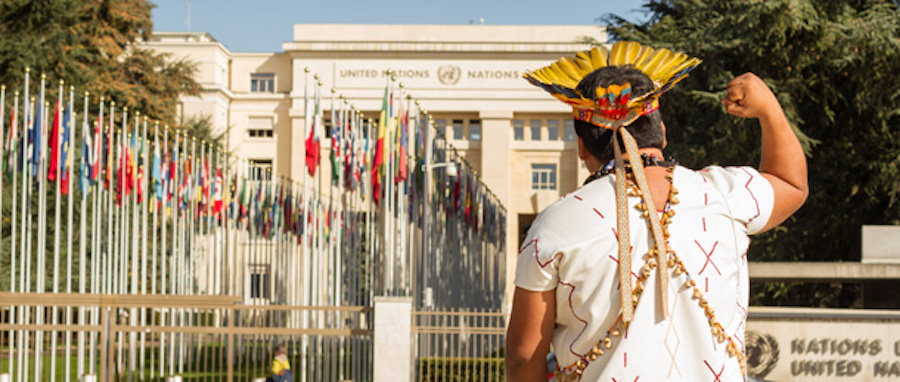
The campaign for a Binding Treaty for example has been critical in bringing organisations together internationally and showing through our different experiences how states are not in the service of people. Even if the balance of forces is currently against us, the experience is pedagogic – it is building knowledge, relationships, articulations that will persevere.
Nomi: Raising awareness of how banks operate is important, because they are the cornerstone of financial and economic conditions. There have been campaigns to move money out of big banks, which is great but I think we need to go a step further by demonstrating how moving that money into new banks, sometimes online ones, with more social and environmental commitments is good personally and for society as a whole.
Another positive initiative has been the drive for a public bank in California. The activism drew on public banking models such as in Germany and North Dakota and was able to push an initiative onto the voting ballots, amidst strong opposition from the major banks.
And now, a public bank has a green light to go ahead. That wouldn’t have happened five years ago and it took a lot of dedicated work across many groups. I think the key is having a clear focus, and lobbying and advocating in local and state politics in a systematic strategic way to achieve change.
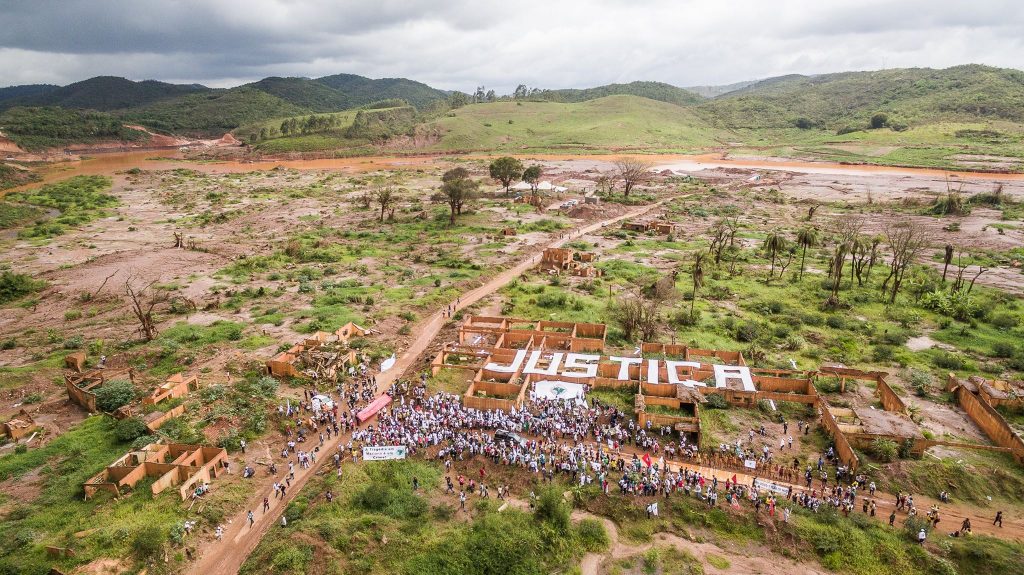
What do you think should be the future of the corporation?
Nomi: In general, the sheer size of corporations has to be tackled again and effectively. The big companies are just too big. Reducing and limiting their size would be the most direct way to reduce corporations’ power, footprint, influence and money flows.
We have monopoly rules on media, energy and banking, but they don’t seem in practice to work or be upheld. Large companies continue to get bigger and smaller companies either disappear or are unable to compete at the same level.
Another avenue would be to provide incentives and financing to encourage smaller and more specialised companies that are autonomous yet work together, or what I would call the gig-corporate economy. I know one company for example that has deliberately divided into three companies that are autonomous but collaborate. This is a more democratic way of restructuring corporations and could be the wave of the future.
Bill Posters: The corporation in its current forms has no future. The future of the corporation needs to be determined by the removal of all legal, cultural, political and moral systems of belief that allow the constant externalisation of the social and environmental costs of doing business on earth.
For the corporation and indeed the human race, the choice is now a simple one: evolution or death.
While we must acknowledge the benefits that some forms of capitalism have brought to some privileged populations, when your corporate lover becomes violent, abusive and a danger to your life and the lives of others, you must end the relationship quickly, and begin again afresh, taking best parts with you and consigning the rest to the fires of Victorian history.
The modern corporation must rapidly transition (in a matter of a decade) to more harmonious syntropic systems of organisation, energy and resource use. By 2030 the world’s fate will be sealed. A new understanding of humanity’s deep ecological relationship as part of nature – not superior to it – will define not just the future of the corporation, but of all life on earth. The stakes are this high now. For the corporation and indeed the human race, the choice is now a simple one: evolution or death.
Tchenna: I do not believe it is possible to have a good transnational corporation. The model doesn’t work. All it does is concentrate power in fewer and fewer hands, and this is creating a crisis for our planet and for democracy and allowing a new wave of fascist leaders to come to power.
We have to look at alternatives. There are lots of different models that integrate autonomy, sovereignty and exchange for producing our food and other resources. Within MAB, we are working on alternative models. For example in our ‘Veredas Sol e Lares’ project in the very poor rural region of Vale do Jequitinhonha, we are working on a solar project to serve people displaced by a hydroelectric project who don’t have their own access to energy.
Most of all, we must use our imagination to show that different paths to development are possible. It is not the end of history, we must fight to define our history and address the profound challenges ahead of us: the climate crisis, the possibility of a new war, social distraction, a crisis of democracy. We need a new politics of life.
Find the three separate interviews with Tchenna Maso, Nomi Prins and Barney Francis, AKA Bill Posters on tni.org.
